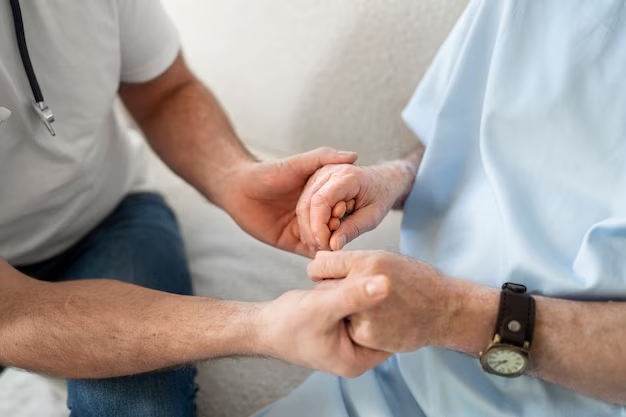Your Guide to Does Medicare Cover 24-hour In Home Hospice Care
What You Get:
Free Guide
Free, helpful information about Medicare Insurance and related Does Medicare Cover 24-hour In Home Hospice Care topics.
Helpful Information
Get clear and easy-to-understand details about Does Medicare Cover 24-hour In Home Hospice Care topics and resources.
Personalized Offers
Answer a few optional questions to receive offers or information related to Medicare Insurance. The survey is optional and not required to access your free guide.
Does Medicare Pay for Around-the-Clock In-Home Hospice Care?
Navigating the intricacies of Medicare coverage can be a daunting task, especially when it comes to end-of-life care options such as hospice. Understanding what Medicare covers regarding 24-hour in-home hospice care is crucial for families planning for this delicate phase. Medicare does provide coverage for hospice care under specific circumstances, but it’s essential to know the limitations and options available to avoid unexpected financial burdens.
Understanding Medicare's Hospice Coverage
Medicare's hospice benefit is designed to support patients who are terminally ill, providing them with comfort and dignity during their last stages of life. This benefit covers a wide range of services, from pain management to emotional and spiritual support for patients and their families. However, Medicare does not typically cover 24-hour in-home hospice care.
Here's a breakdown of what Medicare usually covers under hospice care:
- Intermittent Nursing Care: Nurses visit the patient to provide necessary medical care, but only on an intermittent basis.
- Doctor Services: Physicians provide oversight and medical direction for the patient’s hospice plan.
- Counseling Services: Emotional and spiritual counseling helps both patients and their families cope.
- Medications: Drugs for symptom control and pain relief related to the terminal illness are included.
- Medical Equipment: Items like wheelchairs or walkers necessary for the patient’s care.
- Respite Care: Temporary relief for primary caregivers through short-term stays in a facility.
While these services are comprehensive, the lack of coverage for round-the-clock care means families often have to seek additional help elsewhere unless they can privately fund the service.
Exploring Additional Financial Assistance
Given the limitation of Medicare in covering full-time in-home care, families should consider alternative assistance programs. Here are some strategies and resources that could bridge the gap:
State Medicaid Programs
Medicaid, a joint federal and state program, provides more flexibility than Medicare in terms of hospice care. Some state Medicaid programs do offer around-the-clock in-home care options, especially for individuals who qualify due to their low-income status.
Long-Term Care Insurance
If a loved one has long-term care insurance, reviewing the policy details can be beneficial. Some policies may cover in-home hospice care, providing peace of mind and financial assistance.
Financial Aid Programs
Various organizations and non-profits offer financial aid for families struggling to afford hospice care. Seeking help from local charities and national foundations dedicated to end-of-life care funding might offer some relief.
Credit Solutions
For families who need immediate financial resources, exploring credit options such as personal loans or home equity lines of credit (HELOCs) can be considered. These solutions offer quick access to funds but require a careful evaluation of interest rates and repayment terms.
Government Grants and Educational Resources
Though less directly connected to hospice care, government grants and educational resources aimed at caregivers can provide ancillary support, such as training for family members to better care for their loved ones at home.
Debt Relief Options
If medical expenses become overwhelming, consulting with a professional who can guide you through debt relief options might be appropriate. Options could include debt consolidation to manage medical debts more effectively.
Navigating the intricacies of Medicare and other financial options may seem overwhelming, but understanding available resources can bring significant relief. Families should assess their specific circumstances and consult with professionals to tailor the best approach for their needs.
🌟 Resources Highlighted:
- Medicaid Programs: Check state-specific options for extended in-home care.
- Long-Term Care Insurance: Review existing policies for hospice coverage.
- Non-Profit Aid: Seek financial help from dedicated charities.
- 💳 Credit Solutions: Personal loans or HELOC for immediate funding.
- Government Grants: Educational support for caregiving.
- Debt Relief: Professional advice on managing medical debts.
What You Get:
Free Medicare Insurance Guide
Free, helpful information about Does Medicare Cover 24-hour In Home Hospice Care and related resources.

Helpful Information
Get clear, easy-to-understand details about Does Medicare Cover 24-hour In Home Hospice Care topics.

Optional Personalized Offers
Answer a few optional questions to see offers or information related to Medicare Insurance. Participation is not required to get your free guide.


Discover More
- Am I Elgible For Medicare
- Am I Enrolled In Medicare
- Am I Qualified For Medicare
- Are Adult Diapers Covered By Medicare
- Are Chemotherapy Drugs Covered By Medicare Part d
- Are Colonoscopies Covered By Medicare
- Are Covid Tests Covered By Medicare
- Are Cpap Machines Covered By Medicare
- Are Cpap Supplies Covered By Medicare
- Are Dental Implants Covered By Medicare
